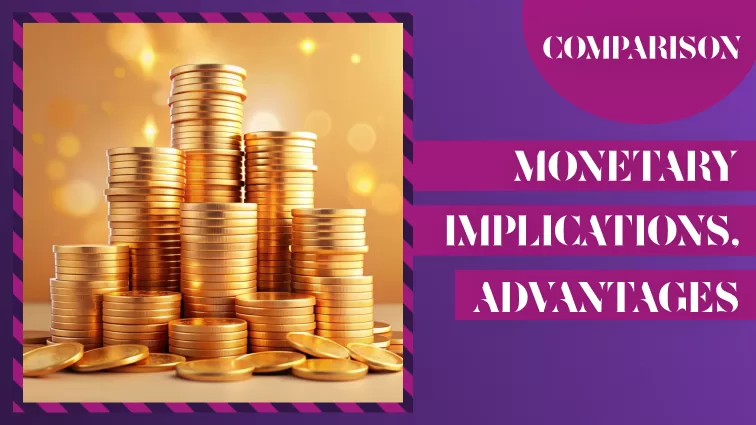
Football is more than a sport, it’s an addiction for some, culture and even lifestyle for the few. In the world of football, there are two contests that reign supreme when it comes to club-football: Premier League and Champions-League. The old adage being that the two leagues present a puzzle of challenges, rewards and thrills – something fans tune into by the millions worldwide. We will look into the differences, formats, participants, Qualifications and overall prestige of these two football giants in detail over this lengthy comparison.
Quick Glance Over the Key Differences

First things first — let’s quickly recap those key differences between the Premier League and Champions League:
- System: Premier League is a league in-country where its teams play all against each other twice, and Champions league has group stages following by knockout rounds played through Europe.
- Participants: The Premier League consists of only 20 English clubs, but there are top teams from across different European leagues contesting for the Champions league.
- Qualifier: Premier League clubs qualify through the English football league system, while Champions League teams gain invites based on high performance in domestic leagues.
- Prestige: The Premier League is widely regarded as the most competitive and popular division in world soccer, whereas the Champions League is recognised as being club football’s ultimate prize where Europe ‘s top sides compete for a prestigious title.
Format and Structure

Premier League
Division : Top league of English football, 38 game season: Each team plays every other side twice (home and away) The round-robin is played in a double round-robin format, meaning each team plays every other league member once at home and again on the road. The teams are ranked according to points (3 points for a win, 1 point in case of tied) When two or more teams have the same number of accumulated hits ties between them settled by use Criteria such as goal difference. The league champions are the team with most points at the end of each season.
The Premier League season, from August to May, is a long and grueling competition that does not lose its charm at any point through out the year. The league has an incredible historical background and hosts some of the most well-known football clubs on Earth, such as Manchester United (pictured above), Ghamletico de Madrid, Liverpool amoungst others. Every week, these teams compete against others in what is often considered to be as one of the toughest football league around.
Champions League
A total of 32 teams compete in the group stage, organised by UEFA. The teams will play 6 group matches (3 home and 3 away) with all but the final play-in games as best of three series. The winners of each group then move on to the knockout stages, consisting of a round-of-16 match, quarter-finals semi and final. Except for the final, which is played as a single match at a neutral site; all of them are home-and-away ties in scene.
The Champions League format attracts all the best teams from around Europe and puts them to face each other – one of the most intense competitions in football. The competition runs from September to May. With millions of viewers from around the world,The Champions League final is one of most-watched sporting events onthem.
Visual Comparison
Here’s a table to illustrate the different formats side-by-side:
| Aspect | Premier League | Champions League |
| Teams | 20 English clubs | Top teams from various European leagues |
| Season Length | 38 games | Group stage + knockout rounds |
| Format | Double round-robin | Group stage + two-legged knockouts |
| Points System | Win: 3, Draw: 1, Loss: 0 | Knockout stages after group phase |
| Champions Decided | Most points at end of season | Single final match |
Study participants and Eligibility

Premier League
20 clubs, all of which are based in England have participated in the Premier League The teams of this league join a promotion and relagation instagram where they compete against the clubs in English Football League (EFL) Championship tier. At the end of a Premier League season, the three lowest-finishing teams are relegated to the Championship and there replaced by another trio from English football’s second level – these being those finishing first and runners-up in that division along with winners of play-offs among third-fifth placed clubs.
Relegation promotes an additional layer of competition to the league with teams fighting not only for the title, but also from falling off out in men’s top leagues. It leads also to a constantly shifting league landscape where new teams periodically get the chance to compete at the highest level but underperforming teams are forced into regaining their top-flight status by playing in poorer-performing tiers.
Champions League
The qualification for the Champions League are based on how a team finished in their domestic leagues. For example, the first four places in La Liga allow teams to secure a place in the Champions League. This is similar to other leagues in Europe that qualify the top teams from their previous season. Clubs can also qualify for the tournament by winning the Europa League or being the current Champions League title holders.
This system of qualification means that only the top teams from each country can play, providing a high-quality competition. One of the things that makes the Champions League appealing is how it combines teams from different leagues to face off against each other, and when watching this these fans get a taste for something so out with domestic competition.
Other Pathways to Qualification
In addition to this traditional league-based qualification, UCL entry avenues abound. The Europa League winners earn a place in the Champions League group stage. In the same way, Champions League winners qualify for that competition in there next season irrespective of how they have done domestically.
With these sort of extra qualification routes, several clubs have the chance to qualify for this esteemed competition. Example: A team does not finish at top of the table in their local league but wins Europa League, they will play next year CL – this way there are good teams to compete every season.
Prestige and Global Appeal

Premier League
The Premier League is constantly the most aggressive and attractive domestic league of any in world football! The game is watched in more than 200 countries live making the audience collectively which reaches up to billions. Incumbent with high quality football, loyal fans and large clubs like Manchester United and Manchester City gives League its immense popularity.
The Premier League is not only popular in England, but it has a massive fan base even outside of the country e.g. places like India where people are crazy about football and root for their favourite clubs or players to perform well on the biggest stage possible. The clubs’ ability to do so is spurred on by the significant media exposure, lucrative sponsorship deals and global tours that tour teams conduct regularly.
Champions League
Whilst the Champions League is widely accepted as the most illustrious club competition in world football. It unites the continent’s cream of the crop to compete in some of their most spectacular matches, where stars shine and memories are made for your history books. The biggest game, the Champions League final itself is one of the most-watched sporting events in the world and this illustrates why it has such a universal appeal.
The champions of the UEFA Champions League, Europe’s flagship club competition The highest accolade any team can earn is to win what was formerly known as “the European Cup,” with the annals of this prestigious tournament filled with legendary moments and famous games. Yearly a number of very best teams from the nations around the world play this game event and it is classed as an particularly amazing contest.
Monetary Implications and Advantages

Premier League
The one thing the Premier League is a reserve of,more than anything else,is incredibly profitable broadcast agreements and therefore very real financial rewards. The league derives most of its revenue from TV rights — both domestic and overseas — sponsorships, and commercial partnerships. Clubs who take part can earn significant financial distributions, which are important for helping them to secure growth and compete on the field.
Clubs in the Premier League have a strong financial muscle and they can spend to recruit top players, build modern infrastructure as well as investing more on youth development. It helps to increase the overall league standard which means even more global spotlight and investment headed their way.
Champions League
There are also more of those in the Champions League provided by financial incentives, too. From the group stage right up to the final, clubs earn money from this competition as they progress. Between those and prize money, clubs can earn billions from making the Champions League over time between matchday earnings broadcasting rights and sponsorships.
With the rewards of competing in the Champions League, your club will be better able to not only compete domestically but also on a global level. Not only can doing well in the Champions League perpetuate a top selling club, it brings reputation and garner consistent news from around the world attracting some of today’s biggest talents when they see teams playing on TV as plenty tune into UCL matches.
The Argument: Which Matters Mostreated?

The contrasting fans, clubs and players view of the Premier League vs The Champions Leauge All competitions have their unique set of challenges and rewards and there importance may also vary if changed in perspective.
For Fans
The premier league is one of the toughest leagues, as it tests teams more than any other given its physical and pace – with survival virtually an entirely different challenge last season. 38 games following your favorite club could lead to a change of emotions on a dime. The local rivalries, the dramatic comebacks and just that week-to-week excitement makes it worth watching.
The case with the Champions League, for example: it enables fans to watch their team play against other elite clubs across Europe. There is nothing like the Champions League, and its knockout nature provides high drama, as tooth-and-claw football plays our for stakes unlike any other. Fans will naturally be attracted to the possibility of a side from their own country being crowned as kings of Europe.
For Players
It provides players with an opportunity to test themselves in the one of most competitive leagues on Earth, The physicality, pace and tactical challenges of the Premier League are such that it demands teams play at their best every week. This is something that proves a player’s ability to play at a high level for quite some time.
But the Champions League gives a couple of them some opportunity to do so at an elite professional level. That’s because Champions League glory is so revered and a key reason why the competition can help to define an era of football, thanks in large part to how it elevates players into global superstars. Most importantly, the chance to face-off against top players in other leagues and potentially win what is arguably world football’s most prestigious club trophy is quite literally a dream for many.
For Clubs
Both are of great relevance to football clubs. It is the showing of English footballing mastery; it comes with vast financial rewards and worldwide appreciation at stake to win the Premier League. It can also bring in top talent and sponsorships increasing the clubs profile too making them financially healthier.
In contrast to the previous two competitions, success in this is capable of really elevating a club’s status far above where they have ever been. The financial gains available from the competition are huge and success in there can enhance fanbase, commercial income and global presence by winning a Champions League. Appearing in the Champions League final is an achivement too many clubs, for some this can be considered as reaching out to grab thier dream.
Driver Trainer FAQ`s


